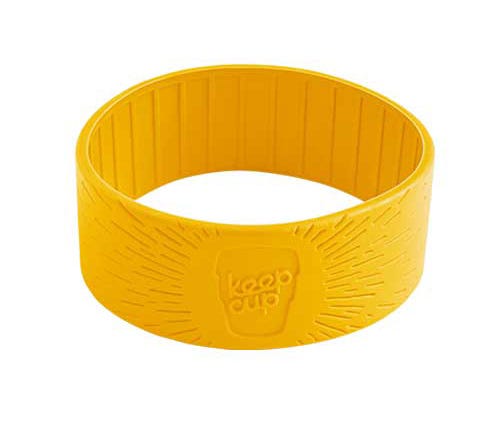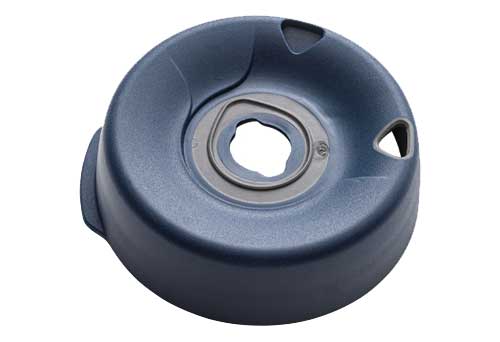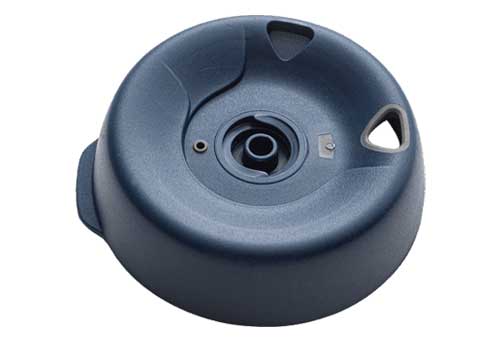Made from durable, tempered glass and designed to enjoy the craft and sensory pleasure of coffee on the go. A drafted vessel for easy pour with a press fit sipper lid, it's lovely to drink from - lid on or off.
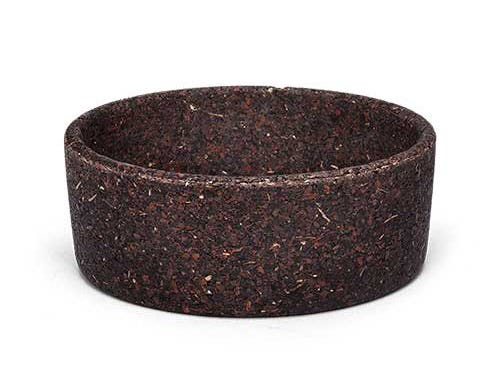

Wood band
Recovered wood
Benefits
- Our recovered wood bands are made from timber manufacturing waste in Portugal.
- Bands provide thermal insulation and comfort for holding while drinking.
- Just like our cork band, its naturally lightweight and biodegradable.
Material information
Natural, renewable, and biodegradable, wood is a sustainable material. Our bands are manufactured from the waste by-product of timber industry in Portugal. Offcuts are granulated, then compression-moulded with a very small amount of vegan food grade polyurethane bonding agent – just enough to hold it together while retaining dark complexion of wood.
Your wood band will change over time with use, and we encourage you to view this as a natural patina to the product.
Part manufacture
Portugal
Manufacture waste
Timber waste from reject stock, extrusion, and tool parts at point of manufacture is re-granulated and used in house to manufacture new products.
Assembly waste and customer returns
Any reject wood bands identified as we assemble, as well as any customer returns, are crushed up and wet to be used as mulch on and around KeepCup garden beds as well as in pot plants in our Australia and UK offices.
End of life
When the wood band is no longer usable, please crush it, wet it, and add to your garden, or into pot plants as mulch.
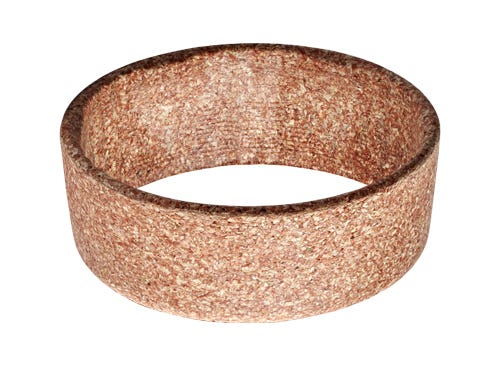

Corn band
Recovered corn
Benefits
- Our recovered corn bands are made from agricultural waste in Portugal.
- An organic texture with natural changing patina, the corn band provides thermal insulation and comfort for holding while drinking. It's naturally lightweight, and biodegradable.
Material information
Natural, renewable, and biodegradable, corn is a sustainable material. Our bands are manufactured from desiccated corn, a by-product of agricultural waste in Portugal. Granulated corn waste is compression-moulded with a very small amount of vegan food grade polyurethane bonding agent – just enough to hold it together, creating an amazing dappled texture.
Our corn band may stain over time with use and we encourage you to view this as a natural patina to the product.
Part manufacture
Portugal
Manufacture waste
Waste from reject stock, extrusion and tool parts at point of manufacture is re-granulated and used in house to manufacture new products.
Assembly waste and customer returns
Any reject corn bands identified as we assemble, as well as any customer returns, will be crushed up and wet to be used as mulch on and around KeepCup garden beds as well as in pot plants in our Australia and UK offices.
End of life
When the corn band is no longer usable, please crush it, wet it, and add to your garden, or into pot plants as mulch.


Longplay sleeve
Co-polyester plastic (Tritan) #7
Benefits
- The Longplay band and sleeve can be retrofitted to 12/16oz glass cup sizes and was designed to increase durability, retain heat, and protect touch by offering a more comfortable hold when used with hot liquids.
- Please note: For the sleeve to work correctly, it needs to be paired with a Longplay band which has an internal lip to hold the plastic sleeve onto the glass cup.
Material information
Our Longplay sleeve is made from Tritan, which is a brand name for clear copolyester plastic - a durable, lightweight and unbreakable alternative to glass.
Part manufacture
Australia
Manufacture waste
Currently in Australia there is no local commercial recycling option for clear plastic (Tritan). Any reject stock, extrusion and tool part plastic waste are being stored at our manufactures while we search for a solution in conjunction with raw material distributor.
Assembly waste and customer returns
In United Kingdom and Australia there is no local commercial recycling option for co-polyester (Tritan). We are storing any identified reject parts, customer returns, while we search for a recycling solution.
End of life
Tritan booster sleeve may be placed in your recycling bin if your local curbside collection accepts #7 hard plastics. Otherwise, discarded booster sleeve will go to landfill.
Less than 10% of all plastic ever produced has been recycled. Currently, 40% of all plastic produced globally is for single-use packaging. Reusable solutions are the only way forward to meaningfully reduce waste and pollution.
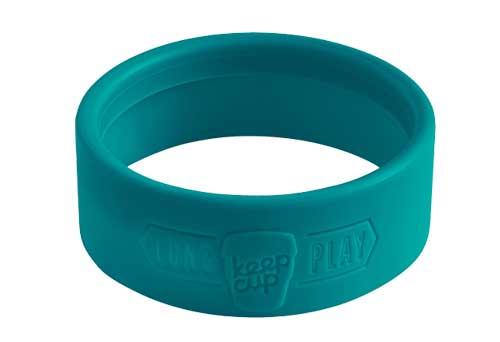

Longplay band
Co-polyester plastic (Tritan) #7
Benefits
- Silicone provides thermal insulation to protect touch. It's flexible, durable, and non-porous, making it highly resistant to degradation.
- It also offers great non slip properties, so you can hold tight when drinking on the go.
- Please note: Longplay bands differ from standard KeepCup silicone bands – they are wider, and have an internal lip designed to keep your glass cup and plastic sleeve connected. For a sleeve to work correctly, it needs to be paired with a Longplay band only.
Material information
Silicone is not a natural material, but a synthetic elastomer (soft plastic). While it is made up of carbon, hydrogen, oxygen and silicon- which comes from silica and is derived from sand, the silicone manufacture process involves extracting silicon from silica, passing it through hydrocarbons (fossil fuels) then mixing with other chemicals.
Part manufacture
China
Manufacture waste
Reject stock at point of manufacture is desiccated and made into silicone oil, which is used in a wide range of industrial applications.
Assembly waste and customer returns
We collect any reject stock, misprints and customer returns. We are storing these in Australia and the UK whilst we search for a local recycling solution.
End of life
Silicone requires a dedicated commercial recycling collection which is not offered by residential curbside collection. Discarded bands go to landfill.
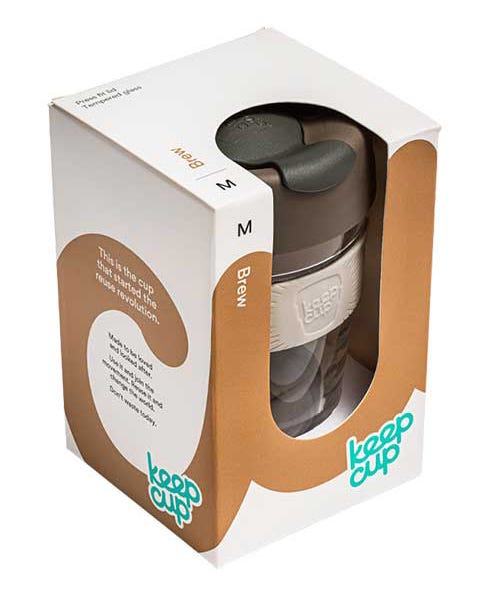

Packaging
100% FSC certified board, using soy based inks. Recycled cardboard cradle insert, to protect glass in transit. Tells the story of the brand to inspire reduce and reuse.
Benefits
- In addition to telling the story of our products and their benefits, we design packaging that walks the line - avoiding breakage and protecting products in transit while minimising material to reduce waste.
- Where possible, we work with customers to ship orders bulk packed and semi assembled, without retail packaging, to reduce waste.
Carton packaging material
Recycled cardboard cartons are designed to maximise the number of product configurations, made in Australia and the UK to service local markets. The cartons are used first to store and ship components, then reused in our assembly locations to ship products to our customer. Recycled cardboard pallet packaging and carton inserts are used to maximise shipping volumes, avoid unnecessary individual plastic packaging and protect our products from damage, and are then reused as space filler by our warehouse team when packing orders.
Part manufacture
Australia and the United Kingdom
Manufacture waste
100% of all retail and carton packaging reject stock and manufacture offcuts are collected and recycled.
Assembly waste
When packing orders, we reuse stock cartons and utilise cardboard waste as space filler. Any damaged cartons, reject retail boxes or unused packaging are commercially recycled.
End of life
All retail packaging and cardboard cartons are readily recycled via household waste service collections worldwide. Please place in your recycle bin for collection.











